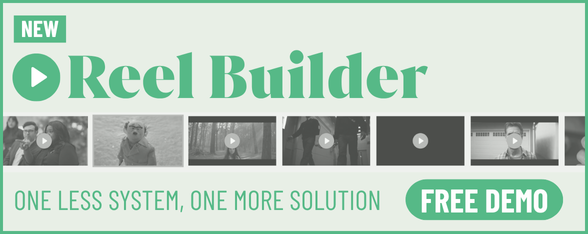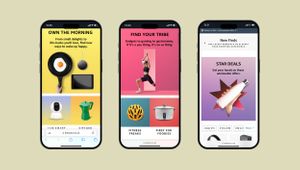
Five by Five on Their New Gold EcoVadis Rating, and Why Carbon Neutrality ‘Isn’t Enough’

Sustainability is a conversation sweeping through adland, with brands’ efforts often center stage in the conversation. But as Five by Five’s group human resources director Katie Whittam-Hayes tells LBB, agencies need to be getting ahead and putting in the work to do their bit. At Five by Five, the creative agency is paving the way with a new gold EcoVadis rating, the world’s most trusted sustainability rating provider, alongside an internal pledge to be carbon neutral by 2030, whatever the costs.
Five by Five jumped from a silver EcoVadis rating in 2020, to gold this year. Such a leap requires a huge effort, and Katie tells LBB that ultimately, it came down to the data. As EcoVadis requires detailed information on everything from energy use to travel data to measure carbon footprint across a range of metrics, it was in 2021 that Five by Five leveraged its efforts to nail the rating.
“The fact that we're embarking upon this, given our size and the fact that we don't have a dedicated team of people focusing on it, is significant. Although there are positives to being independent: we're agile, and we can make changes without it being overly laborious - it’s on top of everyone's existing day job. The fact that we’re finding the time and energy for it demonstrates how engaged we are and how important we think it is. So, it’s disappointing that bigger agencies that have far more resources aren’t doing it,” says Katie.
It’s about evidence, not talk
Sustainability efforts are sometimes accused of being disingenuous, something Katie is keen to show is not the case at Five by Five. “We’re really keen not to greenwash - we either do this properly or we don't do it at all,” she says, “because it's not ethically right to do that.”
She also impresses that the topic of sustainability is ‘huge on clients’ agendas’ and so agencies need to be proactive in their approach in getting them on board: “It isn’t possible to make the sorts of changes we’re talking about, without engaging clients.”
So how are Five by Five doing it?
In addition to the agency’s gold EcoVadis rating and 2030 pledge, they’re considering what it really means to be ‘carbon neutral’. “The way I see it, neutral gets us to a place where we stop adding damage to the planet; however, in order to repair the damage or have any chance of the world not ending, we need to go further than that and start reversing it,” she tells LBB.
But Katie notes that the industry needs to be realistic when it comes to the neutral conversation too. “Neutrality is difficult in itself because we can’t just get rid of everything, so we have to be realistic and not utopian. We can’t say we’ll never fly again - we may need to for our jobs - so one technique is offsetting.”
When it comes to carbon offsetting, Katie says it shouldn’t be the goal. “We may employ it to help get to neutral, and then to negative, however, I’m cautious of it as a concept: I think it should be the last resort. You should strip as much as you can before going there.”
It’s why the EcoVadis rating is so respected: it deals with actual evidence, data, and tangible points rather than talk, says Katie. “It’s incredibly rigorous,” she says. “Human beings review all of your documentation and if they think it's not enough, or it's not recent or relevant enough, or it's not categorically proven to be your own documentation, they will reject it.” The rigorous nature of the rating is one reason why it’s highly regarded, and for Katie and Five by Five, “it ensures that there's an external third party validating the work that we’re doing.”
Five by Five has also launched its own sustainability pledge, aligning with Ad Net Zero, and has signed as formal supporters, to work across internal operations and advertising production. The messaging comes back to shared responsibility and a need to be collaborative, rather than isolated on this journey. “For us internally, and for our clients, it’s important to see this as part of a wider movement,” says Katie. “It’s not just each individual agency or company saying ‘we’re going to do this,” but instead working in the same direction.”
“That is much more powerful than going solo on it all.”
A collaborative effort with clients
While Katie emphasises the importance of agencies being proactive with their sustainability efforts, unfortunately, she says the power still sits with the client. AdGreen has a carbon calculator to help measure the carbon footprint of the industry, from stills to video shoots, which Five by Five is collecting the data on. But as Katie says: “Although we can make suggestions to our clients, ultimately they’re going to have the final say on whether we can make changes to the way we go about it.”
“They’re not going to want to compromise on quality or output - they shouldn’t have to - so it’s going to be a massive collaborative effort to work out how we can deliver to the same high standard while making those carbon savings,” she says.
When it comes to getting the messaging across, there are multiple factors to be considered, says Katie. “Part of it is telling clients what we’re doing and why. It’s on their agendas from a corporate perspective, but how many coming in from a marketing department point of view are really thinking about it, or even know the impact of what they’re commissioning?”
Simply, it seems we need to view the issue of sustainability in advertising wider than only the perspective of a client-to-agency relationship too, and bring people together from all departments.
Five by Five’s innovative approach has helped, says Katie. “For us, we’ve got a creative problem solvers ethos and it’s massively played into our success here because that’s what we need to do: find innovative solutions to deliver exactly what the client needs while making sure it’s world-class with the lowest possible carbon impact.”
“Everyone thinks about recycling and plastic bottles, but I think the industry has begun to look at the operational side,” says Katie, who suggests that even a year ago, the changes being made now wouldn’t have been possible. “I don’t think anyone on a shoot a year ago would have stood and thought, ‘what happens to the clothes when the models leave?’ or ‘Are we considering how we get to the location? Do we need to be abroad?”
Are agencies taking on more responsibility now? Katie says if not, then they should be. “It’s going to become much easier to talk about now because it’s on everyone's radar. Previously, because of clients paying for the work, we did what we had to do to deliver the project. It probably felt like it wasn’t really our carbon cost, but rather the client’s who’d commissioned it.”
But she says now, from an industry perspective, agencies are beginning to take responsibility and realise they can influence decisions. At Five by Five, she says, it’s about making recommendations on how things can be done, and giving the client confidence that implementing changes to the way campaigns are delivered is not only good for the work, but for the planet too.















